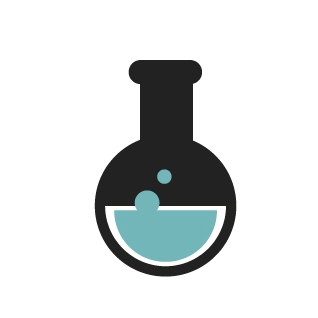I don’t understand how it’s possible to melt a pan? What’s going on?
While I don’t know exactly what happened here, if the pan was dry or all the moisture was cooked out of the food, there isn’t really much to dissipate heat.
If this pan was a cheap alloy, it was possible that it had a low melting temperature. If the stove was on high, the pan will eventually get as hot as the stove allowing it to melt or at least, collapse under its own weight.
Non-stick pans tend to be made of aluminum (660°C melting point), sometimes alloyed with some copper to improve thermal conductivity. Aluminum-copper alloys tend to melt in the 500-600°C range. Most aluminum alloys melt at a point which an electric stove can easily reach if left on high. The coils can glow cherry-red pretty easily, which is 815-870°C.
You can’t just post this and not give context. I keep looking at this and go, “How?”
I’m guessing they forgot about it and left it on until whatever was in it boiled dry/burned off, and then heated the pan to the point it began to melt. I’d bet it took at least overnight if not through the weekend. Some pans will take longer to get to this state than others depending on what they’re made of.
The fact they didn’t burn the place down is sheer luck.
When I was in highschool my mother left a pot of stock simmering and went to work, except instead of leaving it on low she left it on high. I came home to a smoke filled apartment, and the pot was full of chicken bone shaped black carbon. As I grabbed the handle and brought it toward the sink molten metal poured out of the heavy base into the sink. It was scary and I’m grateful I wasn’t severely burned and that our place didn’t burn down!
I discovered the hard way when I had my own business with me as the only employee that if you leave a coffee machine with only a small amount of coffee in it on overnight, there will be no fire.
But good luck trying to get the smell of burnt coffee out of your office for the next week.
I’m guessing he was trying to boil water in a aluminium pan and forgot about it? I’m also guessing said roommate must have left, because a burning non-stick coating would be rather noticeable.
I mean, I did something kinda like that as a kid, I forgot a aluminium bottomed steel pan once and managed to melt the base (thankfully with no non-stick coating fumes).
Isn’t aluminum kinda bad too? Like it’s linked to dementia or something.
Really old research found aluminum in the plaques once, it was actually from contamination in the water they used to wash the brains for the staining agent.
There’s no solid evidence either way.
IMO the biggest problems with aluminum is
- a low melting point :)
and
- It’s reactive to high ph, so you have to be careful what you cook in it.
That is an untruth. There has never been medical proof of this. It was a citation that was read out of context of one random study on Alzheimer. And the internet misinformationed it to the max. Have you heard that you should buy Baking Soda without Aluminum in it? Lie! Baking Soda has NEVER had Aluminum in it. But people constantly repeat this ridiculous myth. Just another fact to ponder, In many Asian nations, aluminum sauce pans have been used for decades (Japan is a great example), and the level of Alzheimer’s is no different than the rest of the world.
Aluminum vapours are toxic and deadly. Apparently they used to make tanks with aluminum, but then tankies who survived a direct hit inhaled some containing it and died from that instead.
It’s also an incredibly soft metal that is stupidly easy to make holes in.
No lie, about a decade ago I rented a room in a long-term AirBnB in NYC where the other 3 rooms were also rented out (so no choice in flatmates; shit was wild). One of the other rooms was rented by this 30-yo French girl from Paris who moved there to follow an ex-bf. Off the bat she was weird; she only ever cooked pan seared liver, toast, or white rice while talking about how she planned on getting this guy back. She would also always argue in French with the Belgian dude who was also renting a room while finishing his masters. Anyway, the kitchen was minimally stocked, so I bought an extra pot, pan, and a toaster oven. She would use the toaster oven but left plastic bags of bread on top, so it melted and ruined the toaster. She also burned rice into the supplied pot every day. It got so damaged after only a few weeks that I had to hide my pot from her, as she systematically destroyed every other piece of kitchen equipment and tried to move onto my personal belongings.
I have several stories from that AirBnB alone. Weirdest 10 months of my life.
Aluminum melts at 1,220° F, I doubt electric stovetops get that hot.
https://www.alineautomation.com/at-what-point-does-aluminum-begin-to-melt/
"For example, pure aluminum metal melts at 660°C (1220°F). However, when you alloy it with other metals, such as copper or magnesium, the melting point can change significantly. Copper-aluminum alloys can melt between 500-600°C (932-1112°F), while magnesium-aluminum alloys can melt between 600-700°C (1112-1292°F).
Additionally, aluminum oxides have even lower melting points than pure aluminum metal. They can start to melt anywhere from 200-400°C (392-752°F). As you can see, understanding the point at which aluminum begins to melt depends largely on what form it takes."
But, steel loses 1/2 it’s strength far lower than the melting point, assuming something similar here… how hot can an electric stovetop get?
https://www.thedailymeal.com/1486561/mistakes-cooking-on-electric-stove-top/
“This is because the uppermost setting can result in the stove top reaching extremely high temperatures, anywhere between 500 and 750 degrees Fahrenheit.”
“Just like steel, aluminum alloys become weaker as the service temperature rises. But aluminum melts at only about 1,260 degrees, so it loses about half of its strength by the time it reaches 600 degrees.”
And there it is…







